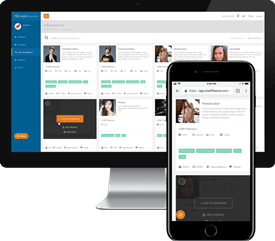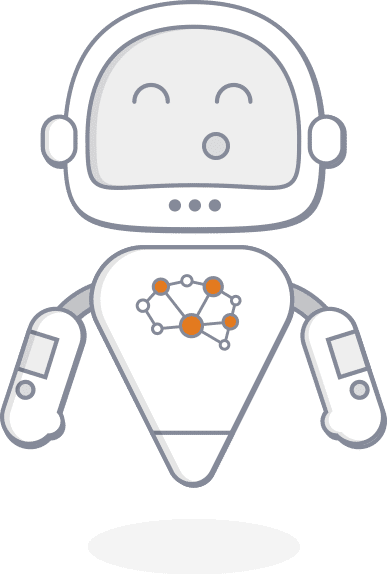Last Updated on December 30, 2020
Angela Maiers is a world-renowned author, entrepreneur, international keynote speaker, educator and influencer on Intellifluence. In 2016, Angela was named a Top 100 Social Media Influencer by HuffPost and in 2017, IBM named Angela a Top 20 Global Influencer. Angela is the founder of Choose2Matter, a universal movement that challenges people to make “mattering” a way of life. She is the author of eight books, including Liberating Genius, The Habitudes, The Passion Driven Classroom and Genius Matters (which we discuss in this interview). You can learn more at angelamaiers.com or choose2matter.org.
Can you tell us a little bit about Choose2Matter and what led you to launch this movement?
Yes! I think from- without articulating it I started my career with five year-olds and they demand that you matter. That you know that they matter and so as a researcher my background’s in neuroscience and linguistics and without looking at it from a researchers’ perspective everything that defined how we ran my classroom with five year-olds was based around the practices and principals of mattering.
Fast forward twenty-five years and I have a chance to do a TED talk and you have seventeen minutes to tell the world how you’re going to change the world. And what I started noticing is I left my presence of five year-olds and I started working with people bigger than five year-olds is people didn’t know they mattered. And I guess I just thought that, you know, we defined each other as human beings in that way. So, I thought well, you know what, it seems pretty simplistic but it’s true If people know they matter and they know their actions counts and are counted on everything in the world changes.
Learning changes, life changes, relationship changes and then the world changes and so as that started spreading and the message of mattering starting to spreading the question arose from that like well how to do that at scale, how do we do that in this community, how do we do that with this group or with this audience and so that naturally brought up the point is that you have to chose it. It’s not a program that you adopt, it’s not a mantra that you implement, it’s not a statement of inspiration it is something that you commit to with fierceness as an individual and a system to embody and embrace and urgently move forward so that’s where choose2matter came from. It walks you through the choices we have to make in order for our lives and our work to matter.
In one of your Ted Talks, you argue that we as humans were created for significance and that we all, in fact, matter. Why do you think many of us struggle with those concepts, to varying degrees?
I think for a long time the concept of success has driven us and has shaped our organization, has sharpened our relationships, and has shaped our lives. And a long time ago I read this by the great Jim Collins and he presented, you know, business with what I call a beautiful question “is good the enemy of great” and so I think the question of our times is success and the way we define it the enemy of significance and I think it started with high profile, you know, movie stars and people from Michael Jackson to Whitney Houston people that had more talent than you can image, more money, more fame, everything that would define success and yet they chose a different path because success is different than significance. And so, I think that we are on a quest for significance as human beings and we are struggling to find our pathway there.
One of your workshops jumped out at me – Getting Social Media R.I.G.H.T as a company rooted in social media, I think our audience of influencers would love to hear a little bit about this… What does it mean to Get Social Media R.I.G.H.T?
It means to get humans right. Exactly what we are talking about. It means- it’s actually so funny that I’m actually working on the evolution of that cause I probably wrote that maybe five years ago and I look at what our trends are, what our patterns are both in technology and in human behavior in organizations and it comes back over and over and over getting social right before you add media.
Technology is neutral. It is an amplifier of human behavior at it’s best and at it’s worst and you cannot embody these antisocial behaviors and then expect media to fix that or to adapt to that. It is our urgency to understand that we are not just using the web we are the web. And it is our behaviors that shape the very platform we’re on and we need to hold ourselves and the companies that build platforms for us accountable for that because we don’t like the web or social media is not the enemy and technology is not the savior, people are.
Tell us about Habitudes and how that concept translates into social media success…
Yeah! I’m going back to five year-olds again because if you can explain something to a five year-old then you know that you can go out and explain it to the world. And trying to help them understand and redefine a different standard for humanity for not just who they are as learners but who they are becoming as citizens. It is a balance of habits and mindset so I put those two words together, habit plus attitude and got habitude because I think when we talk about soft-skills or twenty-first century skills or whatever label we put on these enduring traits that human beings have two things happen. We think that only a certain amount of individuals have it and it’s by accident.
Like they didn’t work on it that they just came out of the womb successful and that no proactive and no pain was involved in any of it when in fact the opposite is true. It is about – it interests me not what they’ve accomplished but what are the habits and behaviors and disciplines they’ve embodied for those epic accomplishments. And the second is when we call it skills we see it – skills is a concept that involves mastery. It involves that you get it done and you check it off but an attitude is something that you develop and something that you nurture and something that you grow and embody and so that is where the word habitudes came. And so, they’re transferable on any medium and any method in any situation but they should be the standard that we set for ourselves as human beings no matter what our role is.
Of all the books you’ve written, is there a particular one you would recommend for influencers to pick up?
It’s hard and it isn’t because I am in love with my work but I think that one of the things about the habitudes even though it’s written with the slant on building them because they are not something that you adopt and adapt easily as an adult where it’s much harder to break a habit than it is to build a new one. So even though the lessons and the exercises are written with the slant of doing this with kids you can’t help but grow as a human being in doing them.
So, my favorite chapter in the Habitudes are I guess my obsession is self-awareness. I think as an entrepreneur, as a business, as a growing industry that wants to make an impact in the world and especially on the web you must be profoundly and fiercely self-aware.
And so that is code for personal branding, that’s code for like finding your unique value proposition, all of those things. And so, I just created a course and I’ll give you the link again it’s for schools because I believe at starting this at five years old and not waiting until you’re in college or running a business to figure out how to do it fiercely. But my new book is called, Genius Matters and I wrote a course on it and it’s a little bit of personal branding meets networking meets team building meets impact and so I would say that one because it’s a mix of all the component parts of my learning.
From your vantage point, where do you see influencer marketing (or social media in general) headed over the next five years or so?
I think the relationship – I’ve been in these really interesting relationships between brands and what would be known as influencers and I think redefining with more clarity what influence is and I think that would help brands understand. And I think that there’s some brands that do but it’s s still this evolving conversation if somebody has this amount of followers or this many likes or shares or whatever that they’re an influencer and that’s not true.
You need to look at what is the velocity of action that people take after being around this person or being a part of something bigger that this person is involved in. I think there is a lot of discrepancy between somebody that is famous or somebody that just has, I don’t know, has the ability to have a lot of followers like you’re on TV or, you know, you’re in a podcast that doesn’t necessarily make you influential.
Every human being has the capacity and is influential and it’s about matching them with the right organizations and the right individuals so that the impact expands. It’s not about making the influencer more popular. The role of a leader is to grow other leaders not to gain followers and I think the role of an influencer is to influence and to expand and scale that influence and not get more things that superficially define what influence is.

Andrew is the Head of Client Services for Intellifluence and has a background in communications. He is committed to helping brands get the most out of their campaigns and is the co-host of the Influencer Spotlight series.





